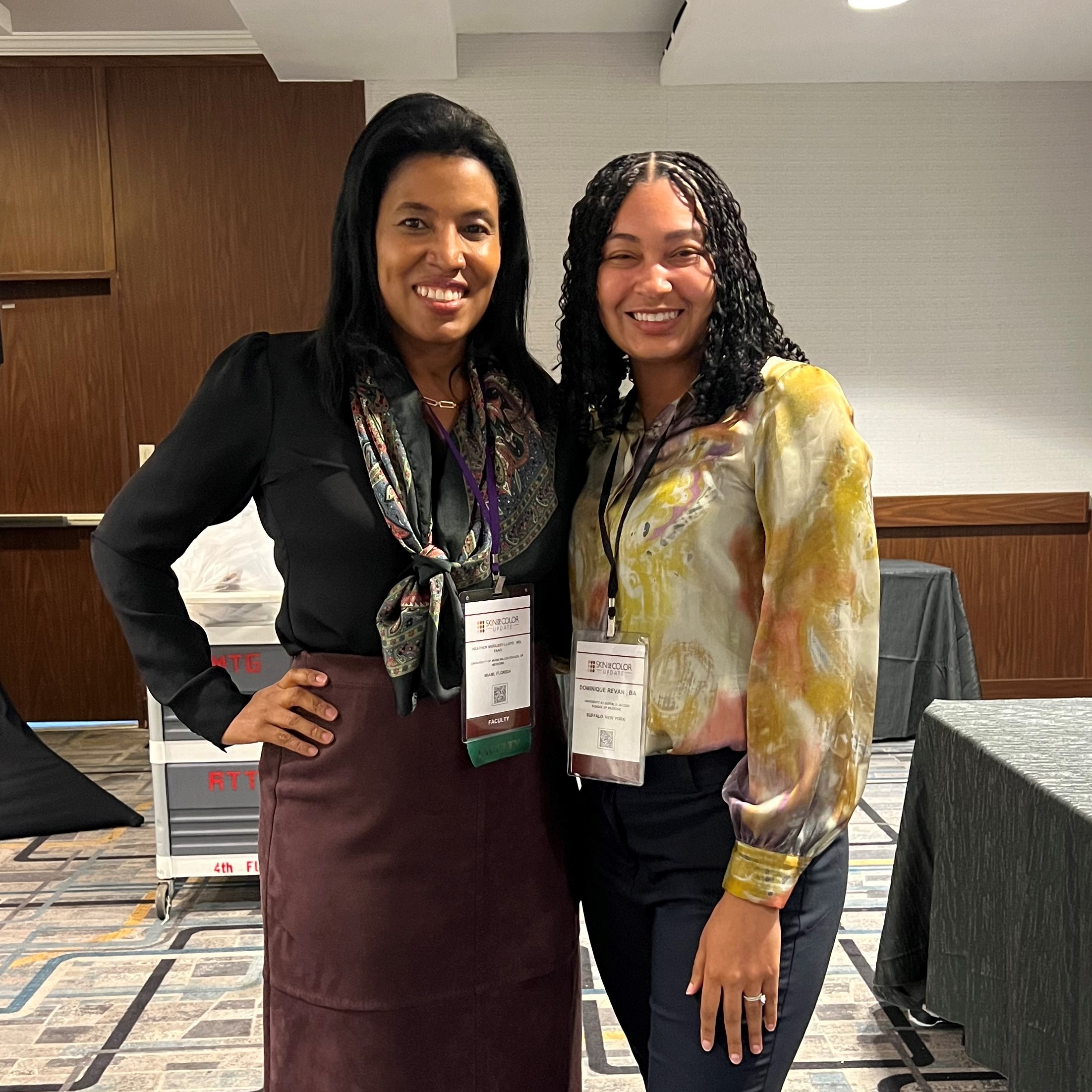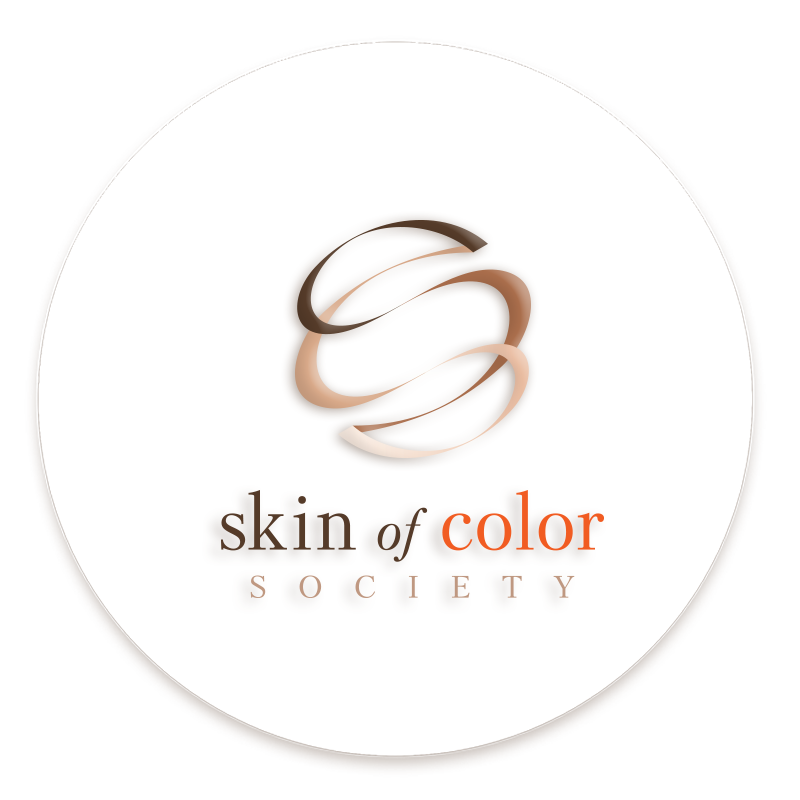
Mentee: Dominique Revan
Mentor: Dr. Woolery-Lloyd, MD
University of Miami Department of Dermatology
Through the SOCS Observership Grant, I had the privilege of spending a month in Miami under the mentorship of Dr. Woolery-Lloyd at the University of Miami (UM) Department of Dermatology. This experience was pivotal in shaping my dermatology journey. As the Director of the Skin of Color Division, Dr. Woolery-Lloyd's patient base is made up largely of women of color, and several patients expressed that my presence in dermatology is both needed and impactful—a sentiment that was incredibly encouraging.
During my rotation, I gained valuable insight into treating and preventing pigmentary disorders, which are a common concern for patients of color. Hyperpigmentation, stemming from sun damage, acne scarring, melasma, and more, was a prevalent issue I encountered. I also gained exposure to clinical research, which was very insightful. Dr. Woolery-Lloyd is particularly passionate about increasing participation of skin of color patients in clinical trials, as they have historically been underrepresented. We initiated several research projects together, including studies on the role of social media in diabetic skin care education and the effects of vitamin D supplementation in acne, hidradenitis suppurativa, and rosacea. These studies have been submitted for publication, with more in the pipeline.
Additionally, Dr. Woolery-Lloyd introduced me to many other experts at the UM Department of Dermatology. As I do not have a home dermatology program, this was my first experience working alongside dermatology residents and attending Grand Rounds. I had the opportunity to work at Jackson Memorial, a public hospital serving predominantly underserved populations. This was a profound learning experience, as many patients presented with advanced dermatologic disease and faced barriers to healthcare access. Nearly all the patients I saw were people of color, many of whom were immigrants from the Caribbean, Central America, and South America. I found myself speaking Spanish with patients 80% of the time, and it was deeply rewarding to use my language skills to serve and advocate for them. Witnessing firsthand how dermatologic care can significantly improve quality of life reinforced my passion for the field.
I also had the chance to write a case report on a patient with nail lichen planus, who had been misdiagnosed with nail psoriasis, leading to a poor prognosis. Unfortunately, such misdiagnoses are common for patients of color due to the lack of dermatologic education focused on diverse skin tones. This further fueled my commitment to addressing racial and ethnic disparities in dermatology, and serving this patient demographic solidified my vision for the future.
In conclusion, I am deeply grateful for the continued mentorship of Dr. Woolery-Lloyd. She has been an inspiration, demonstrating what I aspire to accomplish as a Black woman in dermatology. Her unwavering support has been instrumental in helping me accomplish research, gain clinical experience in skin of color, and build a professional network. I am thankful to SOCS for affording me this incredible opportunity.


